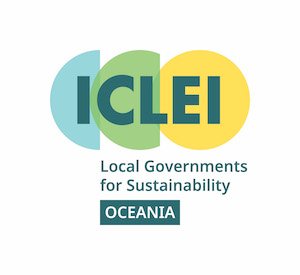9 Actionable Lessons for Positive Climate Change Communication, with David Holmes
On 7th May 2020, Point Advisory and the ICLEI Young Writers Network hosted a webinar on positive climate change communication for agency and empowerment. Drawing from communications research, the webinar was designed to empower listeners with new skills, perspectives and actionable ways of effectively and positively communicating climate change, including within the context of COVID-19. David Holmes, Director of the Monash Climate Change Communication Research Hub, was our guest expert speaker who provided critical insights from his research and answered questions in Q&A with the audience. Approximately half of the participants were representatives from local governments.
Moderator, Amélie Uhrig, Consultant at Point Advisory and Young Writers Network volunteer
Guest speaker, David Holmes, Director of the Monash Climate Change Communication Research Hub (MCCRH)
Faciliator, Timothy Shue, Media, Sustainability & Youth Officer at ICLEI Oceania
Contributors: Zoe Goodman, Ewan Richmond, Phani Harsha Yeggina, and Rosie Pham
9 key lessons
Non-persuasive communication is a method that can have a huge impact because facts are delivered by people that are highly trusted. Read more
Local beats nationals beats global: communities generally have higher trust in things that they identify as local and familiar as opposed to more distant scales (i.e. national/global). Read more
Not just stories: Acceptance of facts or information is not necessarily due to storytelling frames or structures; their effectiveness is also largely influenced by the trustworthiness of the messenger.
Know your groups: Social-psychologists have segmented Australians into five groups—alarmed, concerned, uncertain, doubtful and dismissive—and you should alter your communication strategy depending on which audience(s) you are targeting.
Thick and thin skin: you have to be able to feel what’s going on but the politics can be quite hard-edged, so as a communicator you need to protect yourself from that too and be aware of your own capacity.
Talk away stigma: Disinformation campaigns have been harmful because they discourage social conversations by making climate an uncomfortable topic. One of the best things we can do is to start conversations about climate change and then you can begin to progress to a sense of solidarity (e.g. see work of Climate for Change, or join regular discussions groups hosted by the ICLEI Climate Communicators).
Use co-benefits: Identifying co-benefits of climate action can be an effective entry point especially when talking with people who are in ‘uncertain, doubtful and dismissive’ groups. For example, studies have shown renewables often have involve the least amount of disagreement (they can be associated with other worldviews, values and local political priorities such as employment, local economy, energy access etc.).
Blend fear and hope: Fear on its own can lead to helplessness, but by giving people practical ways to do things you will give people hope, but also a habit in their life that they can control and feel like they’re making a difference. These small habitual changes engage people and mean they are living the solution. This should ideally be scalable and focused first at the local level.
Tap into sports triablism: Friendly competition and the preexisting fabric of sports culture in Australia can be used to celebrate success without shaming people. For example, comparing success in reducing energy consumption between suburbs. Read more

